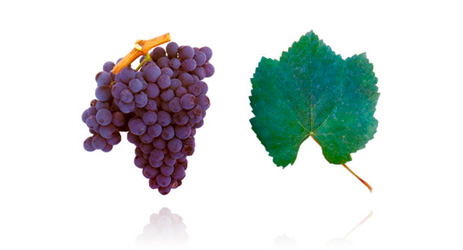[Grape Variety]
Although Baga probably originates from Dão in central-northern Portugal, it is even more commonly planted, and more highly valued, in neighbouring Bairrada, closer to the Atlantic.

It tends to be vigorous, productive and late ripening, and the small berries' thin skins make them prone to botrytis, so that the region's autumn rains can be a particular problem.
When it is overcropped or picked early to avoid the rain, it reveals its worst side: wines that are pale, astringent and lacking in fruit. Picked at the right time and carefully handled to avoid tough tannins, the wines age extremely well, changing from fragrant red and forest fruits in youth to a complex mix of dark-red fruit, olives and tobacco after a few years in bottle. The best examples have a unique perfume and can age gracefully for 20 years and more, retaining their vibrant freshness and becoming silky in texture. Earlier-picked fruit makes a very good base for sparkling wine of many hues.
Try wines from Quinta das Bágeiras, Quinta da Baixo, Luis Pato, Filipa Pato, Sidónio de Sousa and Caves São João.
Wine Grapes by Jancis Robinson MW, Julia Harding MW and José Vouillamoz; www.winegrapes.org
All rights reserved by Future plc. No part of this publication may be reproduced, distributed or transmitted in any form or by any means without the prior written permission of Decanter.
Only Official Media Partners (see About us) of DecanterChina.com may republish part of the content from the site without prior permission under strict Terms & Conditions. Contact china@decanter.com to learn about how to become an Official Media Partner of DecanterChina.com.

Comments
Submit